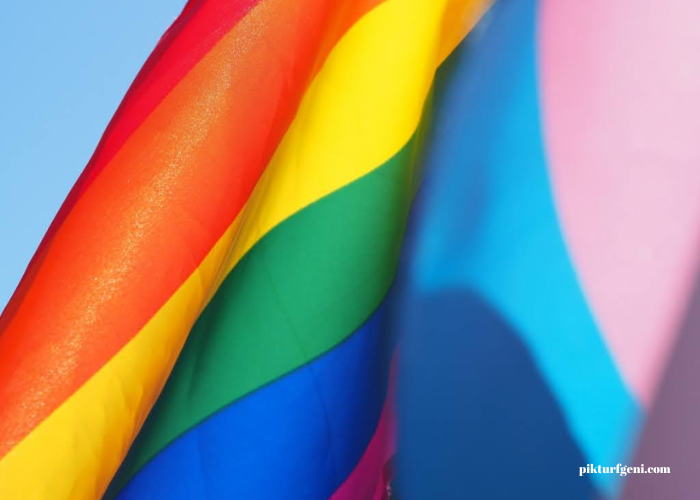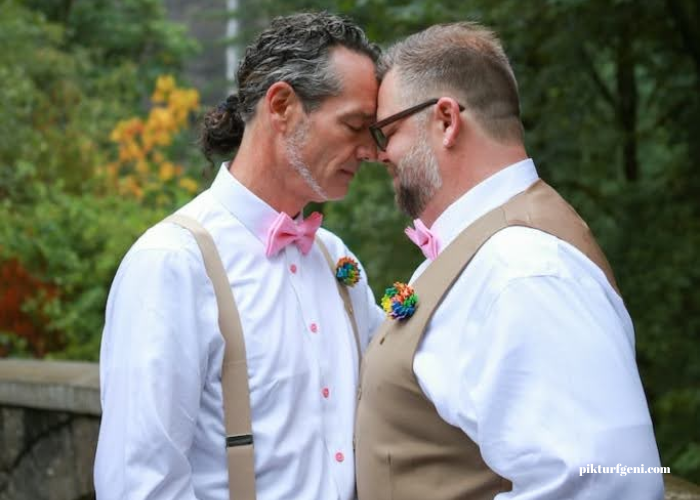Remember the days when LGBTQ+ characters were confined to the role of the sassy best friend or the tragic victim? It seems like a distant memory now. Modern TV series are breaking away from tired stereotypes, allowing LGBTQ+ characters to step into a diverse range of roles that reflect the complexity of real-life experiences.
One notable example is the critically acclaimed series “Pose.” Set against the backdrop of the 1980s ballroom culture, “Pose” not only showcases the resilience and creativity of the LGBTQ+ community but also challenges conventional notions of gender and identity. The characters in “Pose” are not defined by their sexual orientation or gender identity; instead, their stories delve into the universal human experiences of love, family, and self-discovery.
VISIBILITY MATTERS: NORMALIZING LGBTQ+ LIVES
Visibility matters, and TV series have become powerful tools in normalizing LGBTQ+ lives. When characters with diverse sexual orientations and gender identities become integral parts of the narrative, it sends a powerful message to viewers. It says, “Your story is valid, and you belong.”
Take “Brooklyn Nine-Nine,” for example. This lighthearted sitcom seamlessly incorporates LGBTQ+ characters into the ensemble, portraying them as colleagues, friends, and family members. The show doesn’t make a big fuss about their sexual orientations; it’s simply a part of who they are. This normalization is not only refreshing but also contributes to breaking down societal stigmas.
AUTHENTIC STORYTELLING: MORE THAN JUST A PLOT DEVICE
Gone are the days when LGBTQ+ characters existed solely for shock value or to drive a plot twist. Modern TV series are committed to authentic storytelling, treating LGBTQ+ characters with the same depth and complexity as their heterosexual counterparts.
Netflix’s “One Day at a Time” is a prime example of this commitment to authenticity. The show explores the life of a Cuban-American family, and one of its main characters, Elena, is a teenage girl who comes out as a lesbian. The series doesn’t reduce her identity to a mere plot point but explores the challenges and triumphs of her journey with genuine emotion and relatability.
EVOLVING NARRATIVES: FROM COMING OUT TO LIVING OUT

In the earlier days of LGBTQ+ representation, the coming-out storyline was a ubiquitous trope. While these stories are undeniably crucial in depicting the challenges many individuals face, modern TV series are pushing the boundaries by moving beyond the coming-out narrative.
Consider “Euphoria,” a raw and unapologetic exploration of adolescence. The character of Jules, a transgender girl played by Hunter Schafer, navigates the complexities of relationships, identity, and self-discovery. What’s refreshing is that her transgender identity is not the focal point of her character; rather, it’s one aspect of the multifaceted person she is.
TRAILBLAZERS BEHIND THE SCENES
The positive changes in LGBTQ+ representation on screen are not only reflected in front of the camera but also behind the scenes. More LGBTQ+ creators, writers, and directors are bringing their unique perspectives to the storytelling table, contributing to richer, more nuanced narratives.
“Feel Good,” a British comedy-drama created by and starring Mae Martin, is a shining example of this shift. The series draws heavily from Martin’s own experiences as a queer individual, offering an authentic and often humorous exploration of love, addiction, and identity. The fact that a queer creator is at the helm of the show undoubtedly adds a layer of authenticity that resonates with audiences.
CHALLENGES AND TRIUMPHS: REFLECTING REALITY
While strides have been made in LGBTQ+ representation, challenges persist. Some shows still grapple with the risk of falling into tokenism or pandering to stereotypes. Additionally, the representation of certain segments within the LGBTQ+ community, such as bisexual and transgender individuals, still requires more nuanced exploration.
Yet, even in acknowledging these challenges, it’s essential to celebrate the triumphs and acknowledge the positive impact of increased representation. TV series are playing a pivotal role in fostering understanding, empathy, and acceptance, ultimately contributing to a more inclusive cultural landscape. Now, you can amplify the voices of minorities, challenge stereotypes, and advocate for equality in your YouTube videos. With JayNike’s support, you can foster empathy and acceptance, shaping a more inclusive society.
CONCLUSION: A KALEIDOSCOPE OF STORIES
As I reflect on the past four years of cinematic evolution, the rainbow hues of LGBTQ+ representation stand out as a vibrant testament to progress. TV series are no longer content with mere token gestures; they are actively shaping a narrative landscape that reflects the kaleidoscope of human experiences.
From breaking stereotypes to normalizing lives, authentic storytelling to evolving narratives, the role of LGBTQ+ representation in modern TV series extends far beyond entertainment. It’s about visibility, empathy, and, above all, a celebration of the rich tapestry of human diversity. As we look ahead, one can’t help but feel excited about the stories yet to be told and the positive impact they will undoubtedly have on shaping a more inclusive and understanding world.
